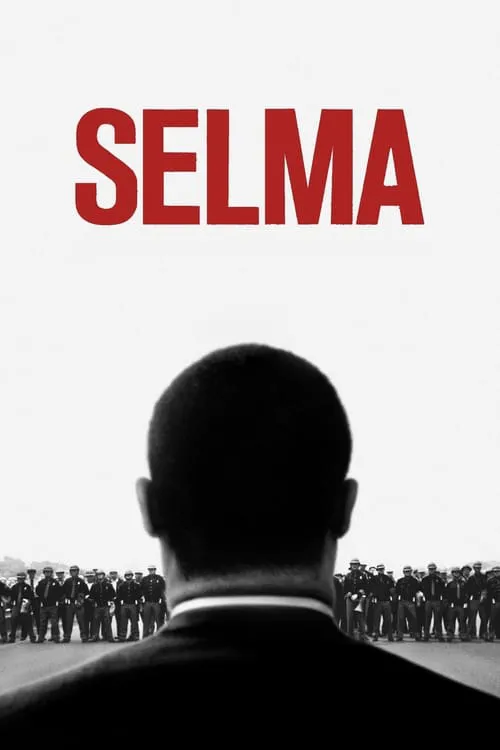Selma

Plot
In the pivotal historical drama "Selma," directed by Ava DuVernay, the tumultuous story of the civil rights movement in the 1960s is brought to life through the lens of the monumental march from Selma to Montgomery, Alabama. The film revolves around the courageous efforts of Martin Luther King Jr., played by David Oyelowo, to secure voting rights for African Americans in the Deep South. The picture opens with the assassination of President John F. Kennedy, a pivotal moment that sets the stage for Lyndon B. Johnson to assume the presidency. As Johnson takes office, his commitment to civil rights is evident through his appointment of Thurgood Marshall, played superbly by Wendell Pierce, as Solicitor General. However, the president faces resistance within his administration, exemplified in the character of J. Edgar Hoover, portrayed by Dylan Baker, who harbors strong animosity toward the civil rights movement. As the story progresses, the nation's eyes are on Selma, Alabama, where African Americans face extreme racial segregation. Under the governorship of George Wallace, a fierce segregationist, African Americans in Selma face systemic oppression, including voter suppression, police brutality, and racial violence. The African-American residents of Selma attempt to register to vote in a futile effort, only to be met with violence and rejection by the local authorities. This sets the stage for Martin Luther King Jr.'s arrival in Selma, and it is his unwavering dedication to nonviolent civil disobedience that captures the hearts of the community. The charismatic leader faces opposition from the local clergy, as some doubt the efficacy of his nonviolent approach, yet he persists in the face of adversity. Upon witnessing the brutal suppression of African-American residents by the local police, Martin Luther King Jr. and his followers orchestrate a peaceful protest march. The first march from Selma to Montgomery commences, but ends abruptly as police violence, orchestrated by the infamous Bull Connor, erupts, leaving Bloody Sunday in its wake. The brutal beatings at the hands of the police sow a seed of doubt in the minds of the public regarding the actions of the local authorities. The images of this day are broadcast on national television, casting a national spotlight on the atrocity. Martin Luther King Jr. decides to lead another march, despite the risks. As this second march, dubbed Turnaround Tuesday, is initiated, a sea of African-American residents flock to the Edmund Pettus Bridge, only to be met with violent resistance by State Troopers. Amidst the chaos, Martin Luther King Jr. is arrested, but before he can reach the jailhouse, word of the state's brutality reaches President Johnson, leaving him with no option but to make a public statement. "Television brought the brutality of [police officers] into your sitting rooms and if you saw that, and we all saw it, there is no need to debate this issue. It sounds to me like it is time we had in this country new guaranteed rights and the first is the right to vote." This stirring statement from President Johnson galvanizes the nation's resolve to reform the discriminatory laws and practices that had become entrenched in the South. In the aftermath of Bloody Sunday, the march is reconvened, with federal troops sent to protect the civil rights marchers, guaranteeing the nonviolent nature of the protest. The culmination of the march sees African Americans finally reach the Capitol in Montgomery, culminating in a historic speech delivered by Martin Luther King Jr., which highlights the struggles and the triumphs of the movement. In the end, it takes two more marches and the unyielding persistence of the civil rights movement that ultimately leads to a significant breakthrough. As a testament to the unwavering dedication and unrelenting drive of Martin Luther King Jr. and his followers, President Johnson signs the Voting Rights Act into law in 1965. The film "Selma" is an unflinching account of this pivotal chapter in American history, a testament to the enduring power of nonviolent resistance and the indomitable spirit of Martin Luther King Jr.
Reviews
Recommendations




